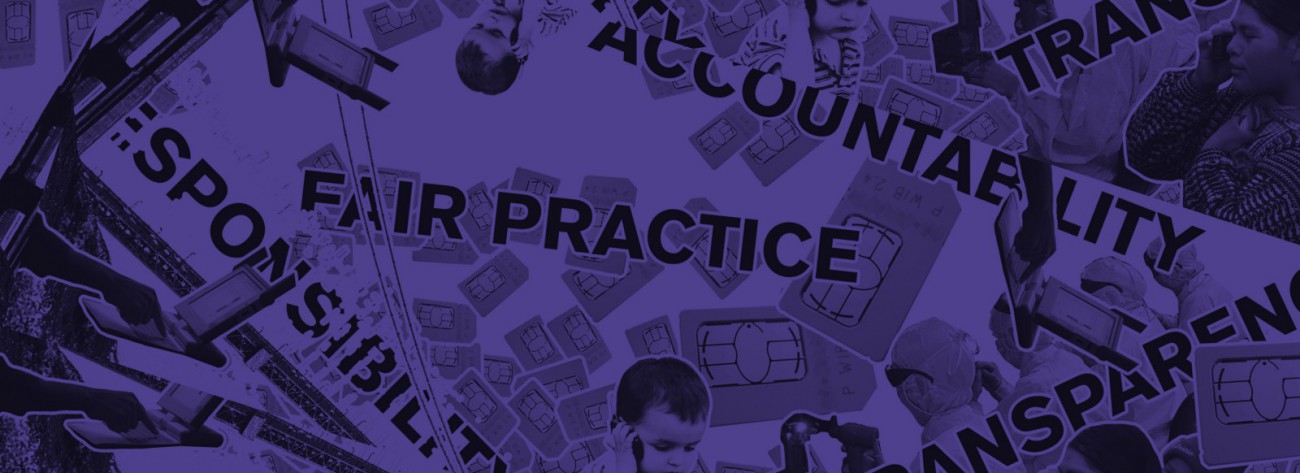In the months that led up to the anniversary of Egypt’s 2011 uprising on January 25th, the government in Egypt engaged in an illegal, covert crackdown on free expression. Hundreds of people were held in unofficial detention centers, and subjected to torture and violence. Often, interrogators forced those detained to open their Facebook and social media accounts to identify their friends and relatives.
When individuals are unlawfully detained in Egypt or anywhere else for expressing their opinions and beliefs, it shrinks the opportunity for free and open discourse on human rights. Opening up to these voices is crucial for every player in the internet ecosystem, from startups to established telecommunications companies, from venture capitalist investors to equipment vendors and the biggest internet platforms, such Google or Facebook. When we open up policy and tech processes to numerous stakeholders including civil society, and create guidelines and accountability mechanisms, we create new spaces for strengthening human rights in the digital age.
For these reasons, Access Now welcomes the announcement that seven companies in the Telecommunications Industry Dialogue (TID), a group of leading international telcos and equipment vendors that jointly address issues surrounding the rights to freedom of expression and privacy, is joining the Global Network Initiative (GNI) for a one-year “observer” membership. The GNI is a global, collaborative initiative that works to protect and advance freedom of expression and privacy in the ICT sector.
We are disappointed to see that AT&T, the one U.S.-based company participating in the TID, appears not to have joined forces with the GNI. Just last year, it was revealed that AT&T helped the U.S. National Security Agency spy on the United Nations, and now it will take on the burden of meeting its human rights responsibilities without the GNI’s framework, assessment process, and multistakeholder input.
Facebook is a full member of the GNI, and joined after a one-year observational term. We hope that the telcos in TID do the same. Because one thing is certain: governments will not stop demanding that telcos contribute to violations of human rights, whether it’s by shutting down messaging apps like WhatsApp, providing intelligence agencies and police direct access to their networks, or handing over user data on a mass scale.
The GNI brings to members the expertise and experience of a wide breadth of stakeholders, including academics, internet platforms, investors, and human rights experts, and has developed a proven and ever-improving third-party assessment process for respecting human rights. Partnering more closely with the GNI will help the telcos reach out faster in times of crisis and push back more effectively against rights-harming requests, while also building a more lasting framework for transparency and accountability in the sector.
Telcos in the TID should continue to engage with outside stakeholders in order for the entire ecosystem to better respect the rights of users and help remedy abuses.
Specifically, as the next step in this process, all TID telcos must adopt policies and practices that GNI companies have implemented: releasing transparency reports, undergoing expert third-party human rights assessments under the GNI Principles, and engaging in joint advocacy at important moments, such as the advocacy that the Reform Government Surveillance coalition undertook. These practices will become increasingly important as pressures mount on the private sector to counter violent extremism by weakening encryption and/or quietly restricting access to certain content. We also encourage the TID to continue its work exploring non-judicial remedy and mechanisms to deliver redress for human rights harms.
Of course, the telcos also have experience and wisdom to impart to the GNI. The members of TID maintain personnel and infrastructure in many different countries worldwide, navigating legal requirements and varying regulatory structures that touch on everything from environmental and labor standards to human rights threats and disaster relief scenarios. The TID has smartly identified the laws in 44 countries that governments use to shift corporate operations and other practices toward non-rights respecting ends, a sort of legal handbook that could form the basis of multistakeholder advocacy for digital rights across the world.
We will continue to press for progress among private sector actors, but take this time to congratulate these two institutions — TID and GNI — for enhancing their partnership. We encourage more companies to join, follow their lead and together implement the GNI Principles in full.
